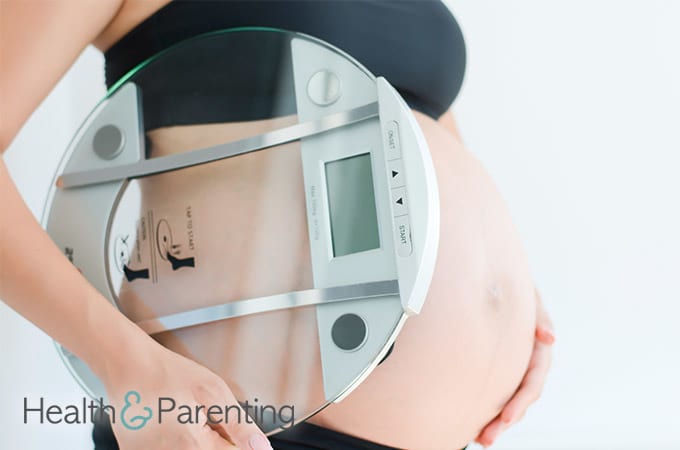As a woman who has been pregnant five times (miscarrying once and carrying twins during another pregnancy), I can say firsthand that the routine weigh-ins during pregnancy exams can often be – no ARE – the most stressful part of the visit. Here you are at the 10 week mark, excited and giddy about carrying a baby, and your health care provider wants to chastise you because according to a chart, or estimate – you have gained 2.6 pounds more than you should have by that point. Or, as you are lumbering in at the 32 week mark, so big that you cannot see your feet, your provider makes a remark that you might need to be super careful during the last few weeks not to gain too much more weight – lest you be overweight after delivery.
Yes, we get it. As pregnant women, we get that monitoring our weight is an ultra important way in monitoring the health of the baby inside us, and ensures that we are taking care of ourselves as well. We also get that according to a host of pregnancy authorities, we should only gain an average of 35ish pounds during pregnancy. And yes, we have also heard all the warnings that losing the baby weight post delivery can be much harder than we think it is. Blah. Blah. Blah.
Unfortunately, weight gain during pregnancy is unavoidable. One of the things you know going into your pregnancy is that you are going to gain weight. And while modern science has debunked the ‘eating for two’ myth that makes many women finally feel it is acceptable to have that second helping of ice cream (or steak), women shouldn’t be so ultra focused on the pounds they are putting on that they feel bad about their blossoming bodies, or stressed about how they are going to lose the weight afterwards.
The focus during pregnancy should be on overall health and wellbeing.
The quality of foods that we put into our body should be nutrient rich in order to feed our baby’s needs and our own needs. Each woman is different, and will gain weight differently. Some will gain weight fast in the beginning and level out during the pregnancy. Other women will hardly gain a pound until the 4 or 5 month mark. Some women gain 50+ pounds during pregnancy, while others only gain 15. At the end of the day, it is the overall health of your body, and of your baby, that matters. While your health care provider means well by weighing you in like a contestant on The Biggest Loser and you shouldn’t be metaphorically eating for two, each woman has a different metabolic rate and a different inherent definition of normal. Additionally, you will find that your weight gain will vary from one pregnancy to the next.
There is already so much pressure on women when it comes to meeting the expectation of a specific number on a scale, that pregnancy should not be a time for women to stress about the weight gain. Pregnancy should not be mistaken as a time to ‘feel fat’ or to be uncomfortable with your body (especially since it is doing such a beautiful thing), or to play into your insecurities about the size of your clothes. It should be a time of finally realizing just how amazing your body is and how intricately you, as a woman, are designed.
Personally speaking, during my third pregnancy, I refused to look at the scale when I was weighed. I would step on without slipping off my shoes, close my eyes, and tell my nurse that I didn’t want to know how much I weighed. I felt that the stress of ‘that number’ was just not worth my time or worry, as long as my baby and I were progressing healthily.
Written By Stef, Mother of 4 @Mom-Spirational
This information is not intended to replace the advice of a trained medical doctor. Health & Parenting Ltd disclaims any liability for the decisions you make based on this information, which is provided to you on a general information basis only and not as a substitute for personalized medical advice. All contents copyright © Health & Parenting Ltd 2018. All rights reserved.










